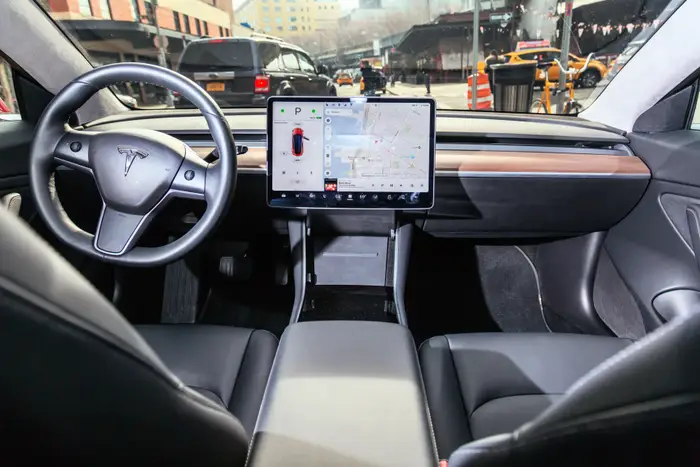In 2023, the global electric vehicle market surged by 35%, with AI-driven EVs spearheading this transformative wave (source: Bloomberg Green). This remarkable growth highlights a pivotal shift in how we perceive and interact with transportation. As AI technology matures, its integration into electric vehicles (EVs) is redefining the future of mobility, promising safer, more efficient, and eco-friendly transportation solutions. In this article, we explore how AI-driven EVs are shaping the autonomous future of mobility, the technologies involved, and what this means for consumers and the environment.
AI and EVs: A Match Made in Tech Heaven
The Role of AI in Electric Vehicles
AI’s integration into EVs is revolutionizing the automotive landscape. This technology enhances vehicle performance, optimizes energy consumption, and provides advanced safety features. Key AI applications in EVs include:
- Autonomous Driving: AI algorithms process data from sensors and cameras to navigate vehicles safely. Tesla’s Full Self-Driving (FSD) technology, for example, uses AI to facilitate autonomous driving, with constant updates improving its capabilities (source: Electrek).
- Predictive Maintenance: AI predicts potential vehicle failures before they occur, reducing maintenance costs and improving reliability. Companies like Rivian and Lucid Motors are investing heavily in such technologies (source: InsideEVs).
- Energy Management: AI optimizes battery usage and charging, extending range and efficiency. Hyundai’s AI-driven systems enable smart energy consumption, enhancing overall vehicle performance (source: CleanTechnica).
Autonomous Vehicles: The Road to Safety and Efficiency
Autonomous vehicles (AVs) promise to significantly reduce accidents caused by human error. According to a report by MIT Technology Review, AVs could decrease traffic accidents by up to 90%. Here’s how AI contributes:
- Real-Time Decision Making: AI processes vast amounts of data in real-time, allowing vehicles to make split-second decisions.
- Adaptive Learning: Machine learning enables vehicles to learn and adapt from various driving scenarios, improving their performance over time.
- Enhanced Navigation Systems: AI-driven navigation systems offer precise route planning, minimizing traffic congestion and reducing travel time.
The Environmental Impact: Greener Roads Ahead
EVs and Sustainability
As the world grapples with climate change, AI-driven EVs offer a sustainable solution to reduce carbon emissions. Here’s why:
- Zero Emissions: EVs produce no tailpipe emissions, significantly lowering pollution levels compared to traditional vehicles.
- Efficient Energy Use: AI optimizes battery usage, making EVs more energy-efficient. Volkswagen’s ID.4, for instance, utilizes AI for efficient energy distribution (source: AutoCar).
- Renewable Energy Integration: AI systems in EVs can integrate with renewable energy sources, such as solar panels, to charge vehicles sustainably (source: PV Magazine).
Battery Innovations: Powering the Future
Battery technology is crucial for the success of AI-driven EVs. Recent advancements include:
- Solid-State Batteries: Offering higher energy density and safety, solid-state batteries are a promising alternative to lithium-ion batteries. Nissan is leading the charge with plans to introduce solid-state batteries by 2028 (source: Reuters Mobility).
- Fast Charging Solutions: AI enhances fast-charging capabilities, reducing charging times significantly. Ford EV’s partnership with Electrify America aims to expand fast-charging networks across the U.S. (source: Battery University).
Practical Guide: Embracing the AI-Driven EV Revolution
How to Choose the Right AI-Driven EV
When considering an AI-driven EV, evaluate the following:
- Autonomous Features: Compare the levels of autonomy offered by different brands. Tesla, BYD, and Rivian are leaders in this space.
- Battery Life and Range: Look for vehicles with long battery life and range. Lucid Motors’ Air model boasts a range of over 500 miles (source: TechCrunch).
- Charging Infrastructure: Ensure access to a robust charging network. Hyundai and Volkswagen are expanding their charging infrastructures globally.
Tips for New EV Owners
- Stay Informed: Follow updates from trusted sources like Electrek and Wired to stay informed about new AI features and EV models.
- Optimize Charging: Utilize smart charging solutions to reduce costs and extend battery life.
- Explore Incentives: Research government incentives and rebates for EV purchases in your region.
Conclusion: Driving Towards an Autonomous Future
AI-driven EVs are at the forefront of the autonomous future of mobility, promising a safer, greener, and more efficient transportation landscape. As technology continues to evolve, we can expect even greater integration of AI, enhancing vehicle autonomy and sustainability. Are you ready to embrace this revolution? Consider the impact of AI-driven EVs on your lifestyle and the environment, and join the journey towards a more sustainable future. The road ahead is not just about reaching destinations; it’s about redefining how we get there.

